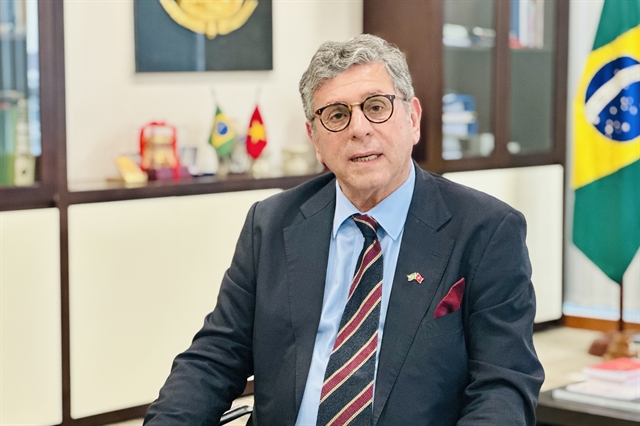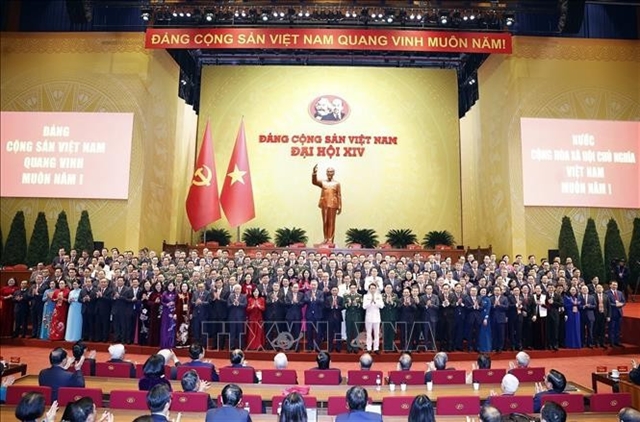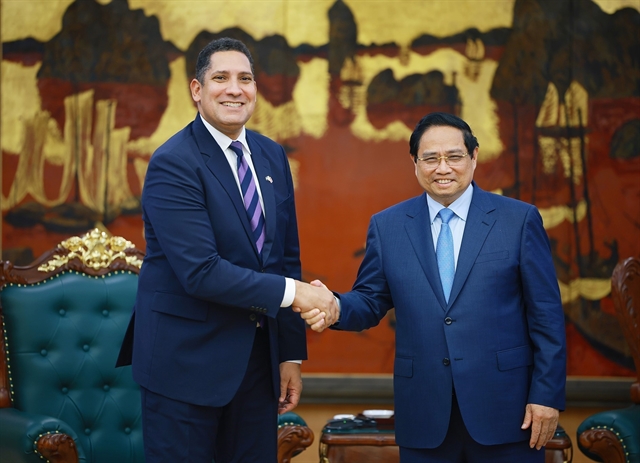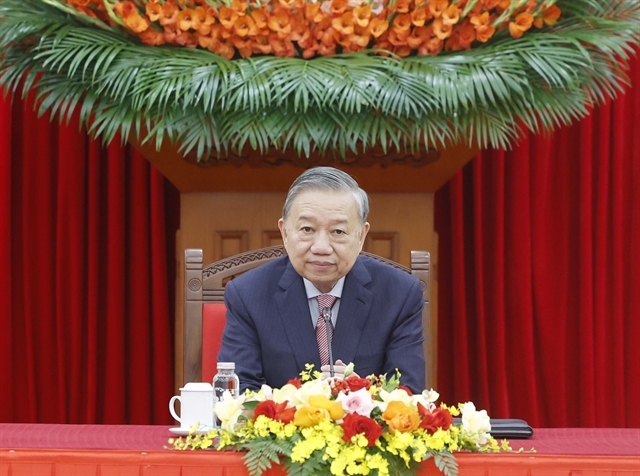 Talking Shop
Talking Shop

 |
| Brazilian Ambassador to Việt Nam Marco Farani. — VNA/VNS Photo Việt Đức |
Brazilian Ambassador to Việt Nam Marco Farani has expressed his belief that Việt Nam will make important contributions to the G20 Summit in Rio de Janeiro, Brazil, from November 16 to 19.
In an interview granted to the press ahead of Prime Minister Phạm Minh Chính’s trip to Brazil for the event, the diplomat said the trip is of significance in different aspects.
Could you assess the significance of Prime Minister Phạm Minh Chính’s upcoming trip to Brazil and its expected outcomes?
This year, Brazil and Việt Nam celebrate 35 years since the establishment of diplomatic relations and I would say that the visit by Prime Minister Phạm Minh Chính for the second time to Brazil reflects two important points: it testifies a relevant degree of progress in mutual trust built between these two countries over the years, which reaffirmed positive prospects for deepening bilateral relations in important areas of bilateral cooperation; secondly, it illustrates Việt Nam's commitment to issues of great importance on the international stage, such as sustainability, poverty reduction, and a more equitable distribution of decision-making power in the world. The Brazilian government recognises Việt Nam's maturity in dealing with these issues and for this reason, in addition to the invitation extended to the Prime Minister Phạm Minh Chính, Việt Nam was also invited to join the discussion panels on agriculture, science, technology, and innovation and the reform of global governance.
How do you evaluate Việt Nam’s initiatives and contributions at G20?
This year, Brazil assumed the presidency of the G20 and launched the theme “Building a Just World and a Sustainable Planet”, which reflects the great concern with the sustainable development of economies, and especially with the reduction of social inequalities in the world. The current world presents a complex and polarised reality. The escalating global tensions have directly affected social well-being and increased inequalities, precipitating the most vulnerable populations into situations of hunger and poverty, not to mention the climate catastrophes that further aggravate this sad scenario. The Brazilian presidency of the G20, concerned with these issues, proposed three pillars that will guide the debates during the G20: social inclusion and the fight against poverty, energy transition and sustainable development, and reform of institutions and global governance as well.
I believe that Việt Nam’s participation in the G20 Summit will bring important contributions and alternatives to issues of economic and social nature that will be the core of the discussions this year under Brazil's rotating presidency of G20. Việt Nam, in first place, is an example of historic resilience and reconstruction and its experience along the years may contribute with alternatives to challenges and crises that impact the economy and social development, especially in the Global South economies.
Việt Nam has become one of the fastest growing economies in Asia, a self-sufficient country in food production, which raised the income level of the population and engaged in efforts to overcome the energy transition process. In the international arena, Việt Nam has participated actively in several multilateral organisations and it has been consistent on the defence of peaceful solutions for conflicts based on the principles of the international law framework.
Could you share with us achievements in Việt Nam- Brazil relations over recent time?
I am pleased to assess the current relations between Brazil and Việt Nam because they reflect the building up of a constructive and harmonious dialogue over the past years. More recently, bilateral relations reached a new momentum with the increase in the exchange of high-level visits. Only during the two last years, we had the honour to receive the Prime Minister, during which we signed agreements in several cooperation areas such as education, agriculture, and defence. Last year, the Brazilian Minister of Science and Technology, the Vice-Minister of Agriculture, and the Minister of Foreign Affairs officially visited Việt Nam. Multi-sectoral seminars were also held in the area of trade and investment. We participated in conferences sponsored by the Academy of Sciences during which were discussed the potential of bilateral relations. We held a high-level seminar, and the “Ethanol Talks”, which presented alternatives for the energy transition. In addition to people-to-people remarkable exchange, we carried out cultural activities to celebrate our 35th anniversary, which contributed to bringing our peoples and cultures even closer.
Could you elaborate measures the two countries should take to deepen and strengthen their bilateral ties in the time ahead?
Brazil and Việt Nam have the conditions to further enrich and diversify bilateral cooperation. Stable economies and policies, a growing population, low inflation rates, high employment rates and a commitment to innovation, environmental sustainability and social inclusion. In terms of trade, bilateral trade reached US$7.1 billion in both directions, with prospects for reaching $10 billion by 2030. The economies have similarities, but also a high degree of complementarity, which helps to attract entrepreneurs from various sectors and increase the prospects for new opportunities in this sector.
Brazil is one of the world's largest food exporters and plays a key role in global food security. This is one of the main reasons why the Brazilian government has been highlighting the issue of hunger and poverty in the world, so that everyone can be freed from the threat of hunger and malnutrition. At the G20, the Brazilian government launched the Global Alliance against Hunger and Poverty, one of the main initiatives of its presidency. This important strategy aims at bringing countries and institutions together and mobilising resources to combat hunger and poverty all around the world.
Furthermore, science, technology, and innovation are pillars of development in Brazil and the government has dedicated resources to the implementation of projects in these areas, such as artificial intelligence, semiconductors production and digital transformation. Brazil has demonstrated considerable progress in the latter. It has green technology and a mature vision of how to reconcile production levels with sustainability. So, in summary, we have three more strategic sectors: food production, energy transition and science and technology, not to mention the cooperation that can be successfully established in the security and defence sector. — VNS




